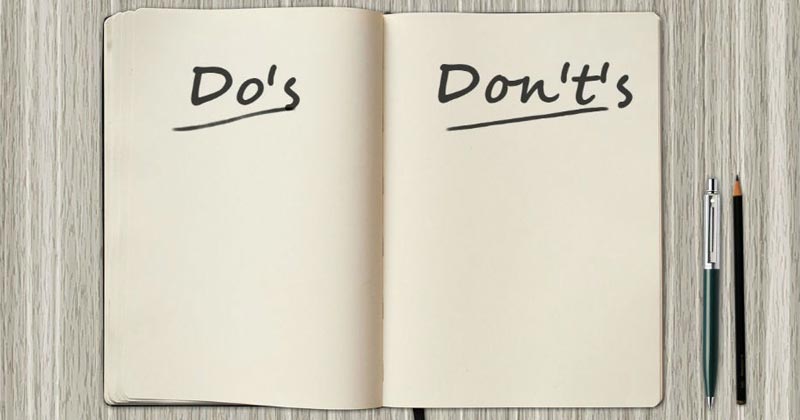Shaking hands with someone is considered a sign of kindness and gratitude all over the world. Or not? In certain parts of Asia, it’s an absolute no-go. There are various gestures that are considered rude that the holidaymakers prefer not to step into. Here are the things you can do in these countries or regions.
In Asia: Smile and Bow but no Handshake?

In most of Asia, please do not shake hands as this gesture is considered rude. Exceptions are Vietnam and China. However, the trend is changing in Asian countries as people now understand that shaking hands is a common western gesture. Like in India, both Namaste or shaking hands is acceptable as long as you greet the person. In other Asian countries, however, you should leave it with a nice smile and a slight bow is enough to greet someone. Long, direct eye contact is considered extremely rude in Asian countries. If you are invited to a meal or you eat in a restaurant, then a small rest should be left on the plate. This signals to the cook that the food tasted good and you got full.
In the USA: Don’t blow your nose in public

‘I’ll go powder your nose for a moment’ sounds very elegant and much better than ‘I just have to go to the toilet’. But in America, it is common to visit a quiet place even for blowing your nose. Nose blowing at the table or even in a small gathering is frowned upon and should, therefore, be avoided. After all, nobody wants to see anyone blowing their nose.
Most of the world: Don’t Charge towards the buffet

A great selection of delicious dishes often means that some people will forget their good manners and storm towards the buffet. However, this behavior annoys many guests. Rather, when sharing a table, it is appropriate to agree on when you want to go to the buffet. Once there, the direction of walking must be observed and followed. This usually guides the guest from starter to dessert. A swim against the current is not very considerate of the other guests.
Incidentally, buffet offers are always geared towards allowing yourself several small portions. A heaped plate, on the other hand, not only looks presumptuous and unappetizing but is also considered rude to the other guests.
In South Asia: Don’t pass food with your left hand

It is considered rude to pass food or even eat with your left hand at the table. The left hand is considered to be used for all the dirty work and thus touching or passing food with it is considered unhygienic.
In Venezuela: Being on time is Rude

Latecomers are often not considered very considerate across the world. But strangely, in Venezuela, It is considered rude to arrive early or even on time. Punctuality is considered as greediness and the person coming on time is frowned upon. For some of us latecomers though, it might be a boon if the same rule is applied in the office.
In Japan: Don’t leave your chopsticks Upright

It is extremely rude in Japan to keep the chopsticks upright in rice while eating. It is a Japanese tradition to keep the chopsticks that way during funeral rites. Keeping the chopsticks upright in rice is supposed to bring bad luck. If you do this, people might just come up to your table and not so gently ask you to keep the chopsticks down.


